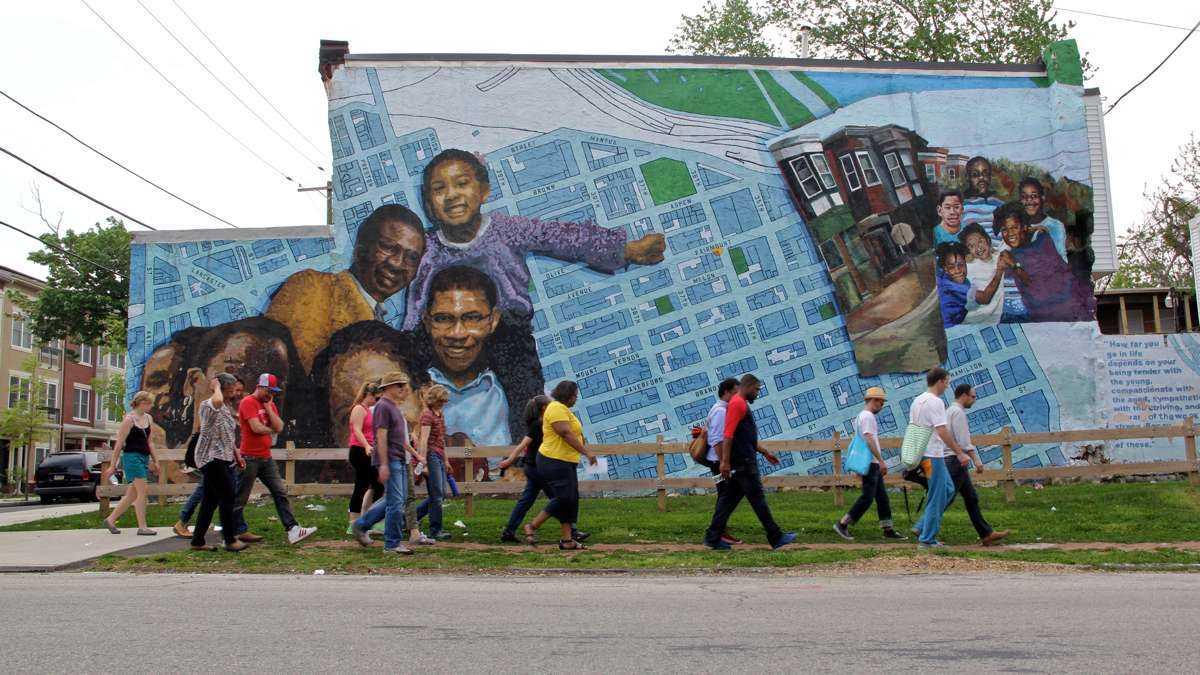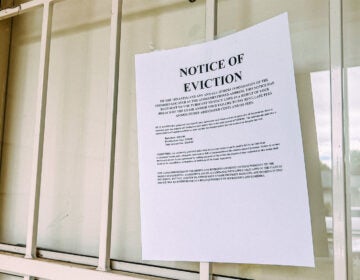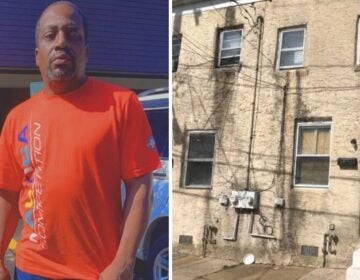Philly should relieve eviction crisis by funding legal representation for low-income tenants

A mural is shown in Philadelphia's Mantua neighborhood at Fairmount Avenue and 34th Street. (Emma Lee/WHYY)
In the nation’s poorest big city, with an overburdened shelter system that regularly turns away requests for housing, our eviction rate is a leading cause of homelessness and housing instability for many vulnerable populations.
Philadelphia’s eviction rate is four times higher than the foreclosure rate, impacting nearly 1 in 14 Philly renters, according to Municipal Court records from 2016. In the nation’s poorest big city, with an overburdened shelter system that regularly turns away requests for housing, our eviction rate is a leading cause of homelessness and housing instability for many vulnerable populations. Those populations include single mothers and their children, seniors, people of color and African Americans in particular, people living with disabilities, and renters living in substandard housing. People’s Emergency Center is concerned with this trend’s impact on families who then experience homelessness, and on the neighborhoods we serve — Belmont, Mantua, Mill Creek, Saunders Park, and West Powelton.
PEC and other advocates across the city are calling on City Council to consider funding for legal representation for low-income tenants. The cost of representation for an eviction hearing is out of reach for too many Philly residents. Although 81 percent of landlords attend court with legal counsel, only 1 percent of low-income renters attend with legal representation, according to Community Legal Services. It’s commonplace for residents with eviction histories to be denied future housing and for heads of household to lose stable employment, which will only further propel families into deep poverty in neighborhoods like the five that PEC serves with community development activities. In these neighborhoods up to 81 percent of the households are renters.
Evictions increase instability and transience in neighborhoods like ours, struggling with a dwindling supply of quality affordable housing stock, leaving them vulnerable to violence and crime. The destabilization of households within those neighborhoods hurts children’s academic achievement and school attendance. If an evicted family enters the shelter system, the average length of stay is six months — at an average cost of $21,000.
Legal representation for low-income tenants protects residents against discrimination, unlawful evictions, and substandard housing. For every $1 spent on legal aid, $11 return to the economy. Leveraged with a more robust homelessness prevention program, it could save the City of Philadelphia hundreds of thousands of dollars each year.
—
Kathy Desmond is president of the People’s Emergency Center in West Philadelphia.
WHYY is your source for fact-based, in-depth journalism and information. As a nonprofit organization, we rely on financial support from readers like you. Please give today.




